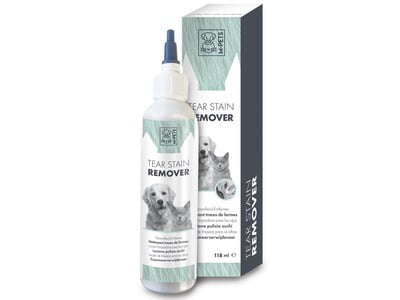If you’re a pet owner, you understand the joy and companionship that your furry friend brings into your life. Pets become integral members of our families, offering unconditional love and loyalty. However, along with the love and laughter they provide, pets can also bring unwanted guests into your home – parasites like fleas, ticks, and worms. In this comprehensive guide, pet barn will delve deeper into the world of common parasites that can affect your pets, discuss the potential risks they pose, and provide in-depth tips for preventing and treating them to ensure your pet’s health and happiness.
The Menace of Fleas: Tiny but Troublesome
Fleas are tiny, blood-sucking insects that can infest your pet and your home. These pesky creatures can cause a range of health issues for your pet, including skin irritations, allergies, and even anemia in severe cases. Fleas are notorious for their rapid reproduction, making them challenging to eradicate once an infestation takes hold.
Prevention and Treatment:
- Use monthly flea preventatives recommended by your veterinarian. These preventative treatments come in various forms, such as topical solutions, collars, and oral medications.
- Regularly groom your pet to check for fleas. Brushing your pet’s fur can help you detect fleas or their feces, which resemble tiny black specks.
- Vacuum your home frequently, paying special attention to pet bedding, carpets, and upholstery. Dispose of the vacuum bag or contents immediately to prevent reinfestation.
- Wash your pet’s bedding, toys, and other belongings regularly in hot water to kill any fleas or eggs present.
Ticked Off: The Dangers of Ticks
Ticks are external parasites that latch onto your pet to feed on their blood. Beyond the discomfort they cause, ticks can transmit serious diseases, such as Lyme disease, ehrlichiosis, and Rocky Mountain spotted fever, to your pet and potentially to you as well.
Prevention and Treatment:
- Check your pet for ticks after outdoor activities, particularly in wooded or grassy areas. Ticks often attach themselves to areas with less fur, such as the head, neck, and paws.
- Use tick preventatives and repellents as recommended by your veterinarian. These products can be applied topically or taken orally and offer protection against ticks for varying durations.
- Remove ticks promptly using fine-tipped tweezers, grasping them close to the skin’s surface. Pull the tick straight out without twisting to avoid leaving mouthparts behind.
- Be vigilant and seek immediate veterinary attention if you notice signs of tick-borne illnesses in your pet, such as lethargy, lameness, or fever
Internal Intruders: Worms in Pets
Internal parasites, such as roundworms, tapeworms, and heartworms, can silently wreak havoc on your pet’s health. These parasites can affect various organs and systems, causing issues ranging from digestive problems to heart and lung damage.
Prevention and Treatment:
- Administer regular deworming treatments, as recommended by your veterinarian. The frequency and type of deworming medication will depend on your pet’s age, lifestyle, and potential exposure to parasites.
- Keep your pet on heartworm prevention medication, as heartworms can be fatal. Regular preventive treatment, often available as monthly chewable tablets, can effectively protect your pet.
- Practice good hygiene and dispose of your pet’s waste promptly to prevent the spread of worm eggs. This simple step can help protect your pet, other pets, and even children in your household.
- Visit your veterinarian for regular check-ups to detect and treat internal parasites early. Veterinarians can perform fecal tests to identify the presence of worms and tailor the treatment accordingly.
A Holistic Approach to Parasite Prevention
Preventing and treating parasites in your pet is a comprehensive endeavor. Besides following the specific prevention and treatment guidelines mentioned above, maintaining your pet’s overall health is crucial. Here are some additional steps you can take:
Diet: Ensure your pet is on a balanced, high-quality diet that supports their immune system and overall well-being. A strong immune system is better equipped to fend off parasites.
Exercise: Regular physical activity not only keeps your pet in good shape but also helps maintain their overall health, making them less susceptible to parasites.
Clean Living Environment: A clean and well-maintained living space can prevent parasites from taking hold in your home. Regular cleaning and sanitizing are essential.
Additionally, understanding your pet’s behavior and environment is key to preventing infestations. Some pets are more likely to come into contact with ticks due to their outdoor activities, while others may have a greater risk of contracting worms based on their diet and lifestyle. Knowing the risks associated with your pet’s unique situation can help you tailor your prevention strategies more effectively.
Remember, your veterinarian is your best source of information when it comes to your pet’s specific needs. Regular check-ups and open communication will ensure that you’re on the right track in preventing and treating parasites in your beloved companion.
In conclusion, while parasites like fleas, ticks, and worms can pose significant health risks to your pet, there are many effective methods for prevention and treatment. By staying informed, taking proactive measures, and partnering with your veterinarian, you can help keep your furry friend safe, healthy, and parasite-free. After all, a happy and healthy pet means a happy and healthy home for everyone. By following these guidelines and prioritizing your pet’s health, you can enjoy many more years of joy, love, and laughter with your cherished companion.

 TEAR STAIN Remover
TEAR STAIN Remover 